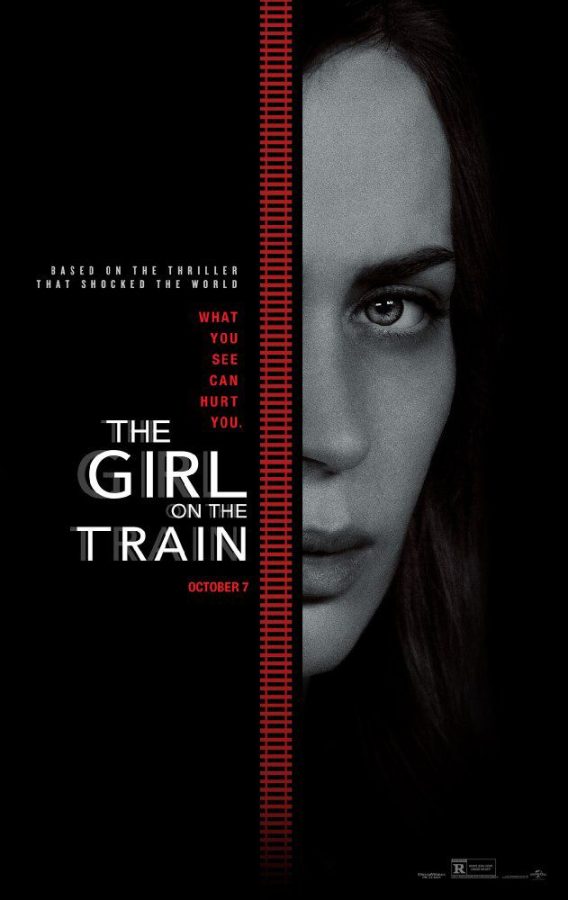“The Girl On The Train” has been exhaustively compared to “Gone Girl” since it began production. Which is fair to a certain degree. Both movies are based on hit novels, hinge on the mysterious disappearance of a housewife, promise a thrilling twist and feature complicated, dark women at their center.
So allow me to get this out of the way now. “The Girl On The Train” is not nearly as good of a film. Where David Fincher succeeded in creating a tense tone and sense of dread in a well-plotted thriller with intriguing, layered characters, director Tate Taylor’s attempt is unsatisfying, poorly paced and melodramatic. The “twist,” essential to this kind of story, is one the viewer will likely see coming, whether they’re fans of the novel or not.
The film follows Rachel (Emily Blunt), a barely functioning alcoholic and divorcée who spends her days riding the train into New York City despite having lost her job due to her drinking. She looks out from the window every day at the old home her ex-husband shares with his new wife and a beautiful young couple, Megan and Scott (Haley Bennett and Luke Evans), a few houses down who she doesn’t know but idealizes. On one of these boozy rides she sees something she shouldn’t and gets off at their stop later that night on her way home. She wakes up at her apartment bloodied having blacked out the previous night’s events. The news informs her Megan has gone missing. The rest of the movie sees Rachel inserting herself into the investigation and trying to recover her lost memories of that night.
I’m tempted to recommend the film simply on the merits of Emily Blunt’s performance, because she really is that good. Blunt’s been churning out quality work for years in indies and mainstream movies across genres, but this is a star vehicle the magnitude of which she hasn’t experienced before and she shines. Blunt bares the rage, fear, and self-loathing of a very damaged women in a startling and captivating way. It’s almost sad how excellent she is here, considering the remainder of her cast doesn’t seem to be trying even half as hard. The film is suppose to explore three women: Rachel, Anna, and Megan. However, Ferguson and Bennett come across to the viewer as disinterested and flat. Though to be fair the writing can be just as much to blame as the acting.
Some may chalk this film’s failure up to it having unlikable female leads, but that would be a mistake. Heaven knows we need more morally questionable and imperfect women on the screen. Do any of us truly like Cersei Lannister (“Game of Thrones”), Amy Dunne (“Gone Girl”) or Jasmine Francis (“Blue Jasmine”)? No. But these characters are still fascinating, intriguing, and worth caring about, for better or worse, and exist in complicated, interesting worlds. Director Taylor and screenwriter Erin Cressida Wilson don’t provide that foundation here for their characters, and in doing so fail us and them.








